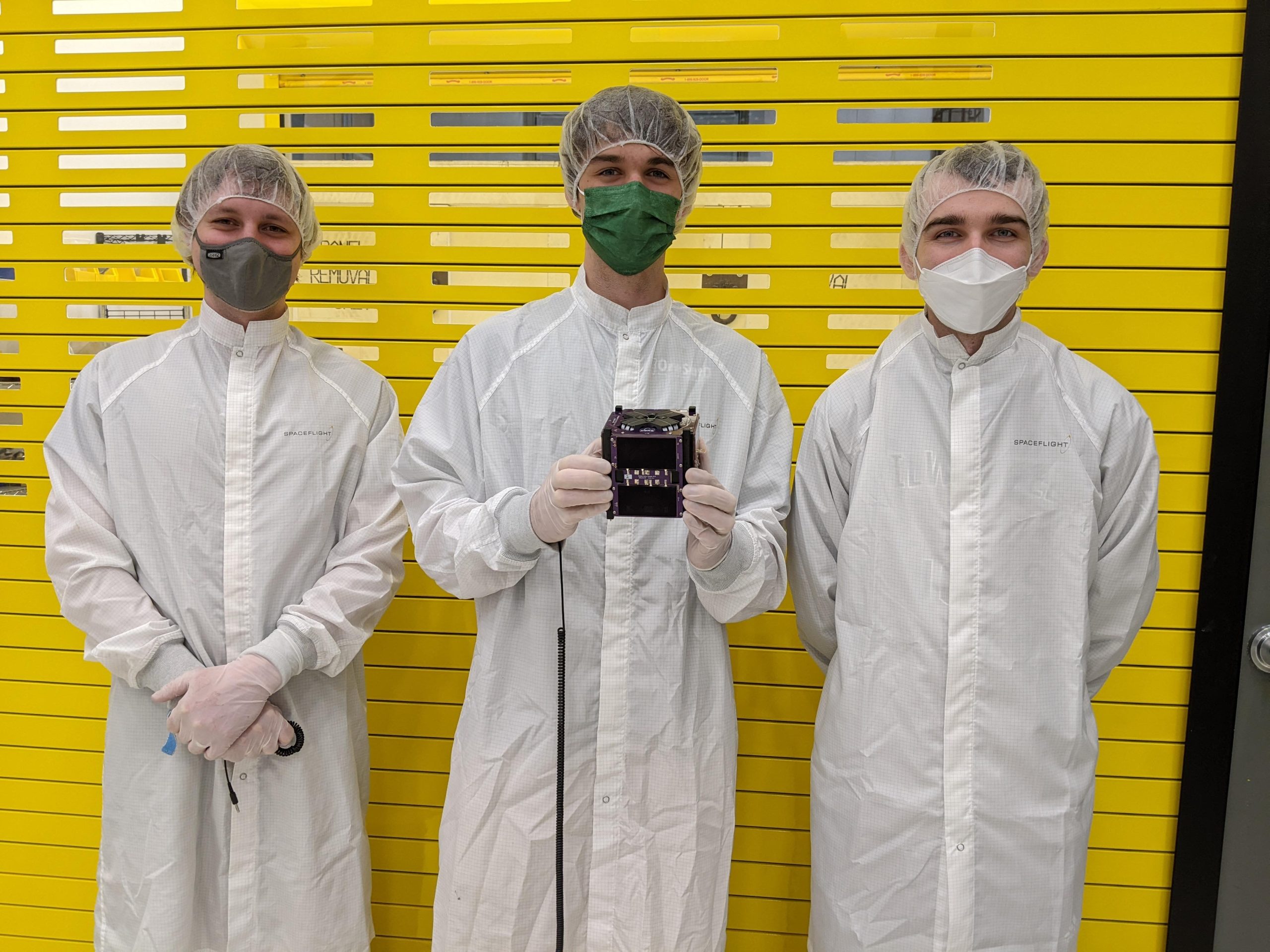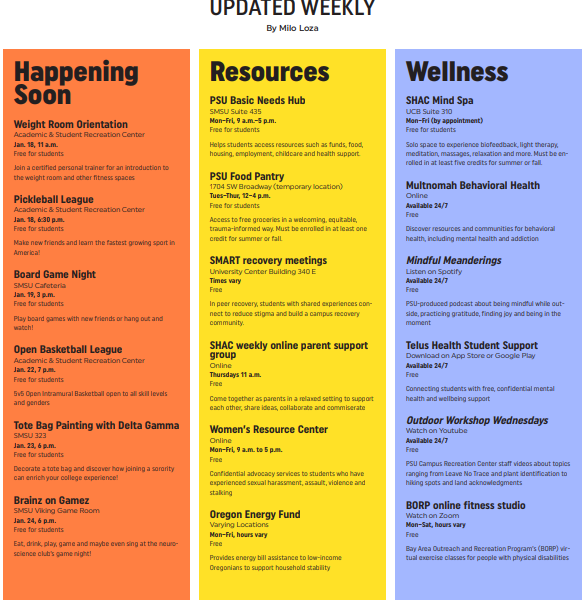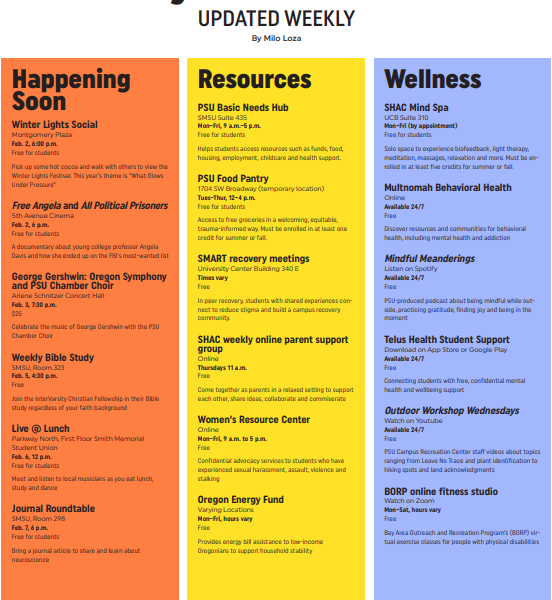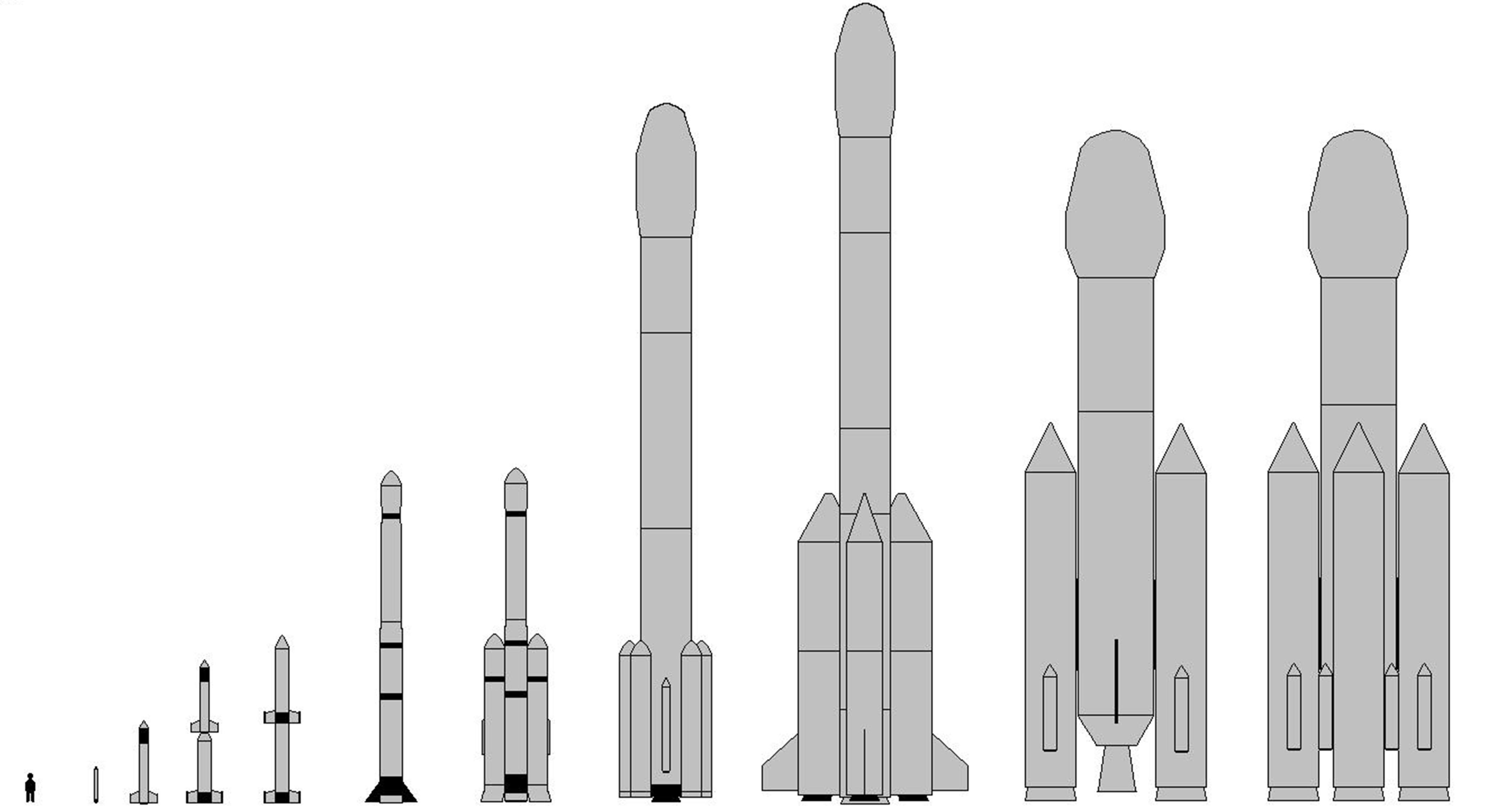Portland State Aerospace Society (PSAS) is a place where DIY rocketry meets nanosatellites, and the only rule is that there are no rules! PSAS is a vibrant group of students from diverse backgrounds coming together. After all, who said rocket science couldn’t be fun?
The club creates an interdisciplinary workspace which fosters collaboration among diverse minds. “PSAS is not your run-of-the-mill student club,” said Andrew Greenberg, a senior instructor in Electrical & Computer Engineering (ECE) and the faculty advisor for PSAS. “It’s an entire universe of mechanical engineers, electrical engineers, computer science enthusiasts, artists, business majors and more, all united by their passion for aerospace.”
PSAS has about four major projects. First up, amateur rocketry—a journey which began in 1998 with small rockets and has since skyrocketed to medium-sized test vehicles reaching 30,000 feet in the Oregon desert.
These rockets are not destined for space but serve as testbeds for cutting-edge technology which will be used in future launches.
The ongoing projects under this include a Launch Vehicle 3.1—a rocket slated for liftoff in Bend, Oregon, this summer. “It’s a new and improved rocket from our past models, because this has an electronic recovery system to release parachutes instead of using black powder,” said Savannah Krupa, an undergraduate working on their mechanical engineering degree.
From running Linux on rockets to pioneering Wi-Fi beyond Mach 1, PSAS has left a mark on the field of space.
The second project is all about liquid fuel engines, which are a big step up from solid fuel engines. PSAS is making its own liquid fuel engines which can be scaled up as they study new rocketry areas. The advantage of liquid propellants is that they can be controlled. Adjusting their flow into the combustion chamber adjusts the amount of thrust produced. Also, liquid engines can be stopped and restarted later.
A tiny, liquid-fuel-engine test stand named MinTS—short for minimal test stand—is shaping up to be a small-scale, hands-on learning experience for undergraduates to use and test the new rocket motors and engines.
Ground stations for satellites make up the third project, involving the construction of large antennas, rotating dishes and sophisticated software for communication.
“The aim [is] establishing a global network of open-source ground stations, fostering collaboration with universities worldwide,” Greenberg said.
PSAS uses partnerships to make its projects better. For example, they work with universities—like the University of Maryland, Baltimore County—on climate science research, as well as local businesses—like the crowdfunding platform Crowd Supply—to promote STEM subjects.
Lastly, the CubeSats or nanosatellites. PSAS launched OreSat0, which is currently in space and is Oregon’s first satellite.
“Ever since we launched Oregon’s first satellite, we’ve been on the radar for a lot of people—both the school, the local community, the state and also out of state,” said Aiden Tuan, the program manager for PSAS.
“The vision is to put our own nanosatellites into orbit using our own rocket,” Greenberg said.
PSAS isn’t your typical aerospace lab with a professor at the helm and funded research projects. Greenberg clarified that it’s more of an aerospace organization than a lab. It thrives on being student-driven, with projects guided by passion rather than a rigid research agenda.
Greenberg acknowledged their unique position as one of the few open-source entities in aerospace.
What sets PSAS apart is its commitment to open source. In a world where aerospace projects often guard their designs like state secrets, PSAS proudly publishes everything on GitHub, giving everyone access to a wide range of resources, including software, hardware and mechanical designs.
Their CubeSat designs, which are freely accessible to anyone, have become a reference point for other aspiring space explorers. PSAS actively encourages others to build upon their work, embracing the spirit of collaborative progress.
Diversity, equity and inclusion take center stage with We in Space—an initiative to increase representation in aerospace. PSAS actively works towards involving women and minorities, hosting events, fundraisers and speakers to amplify their impact.
The real success lies in its alums, now scattered across the aerospace industry, with over 45 former members working for giants like SpaceX and NASA.
“The most important part is our core mission, which is to bring the sort of, like, the love and passion for science and aerospace to the school and the community, and that’s what we’ve been consistently doing,” Tuan said.
The PSAS defies convention, embracing a DIY spirit in pursuing space exploration. Their journey is a testament to the power of collaboration, open-source ideals and a fearless approach to taking small steps towards big dreams.
Anyone interested in space and wanting hands-on experience is welcome to join. Whether you are an aspiring engineer, a space enthusiast or someone looking for a cosmic adventure, PSAS invites you to join their quest to touch the stars.






